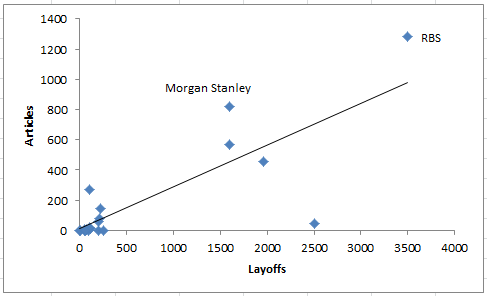Basic Financial Planning for Start-Up Workers: Your Goals
This is Part I in what will hopefully be a multi-part series on how start-up workers should best manage their financial planning. For more about me and caveats, see the intro. I obviously don’t know you (or maybe I do, but still…), so please think critically about your personal situation before making decisions with your money.
Step 1: Write down your goals
The cornerstones of all financial planning are your goals. Why, exactly, are you saving money?
For most of us, our goals follow the same general pattern. But small differences in what we want can make for wildly divergent steps that we need to take.
So before anything else, you need to think about what you are trying to accomplish. Write down your goals in roughly the order of importance to you. And by ‘goals’ I mean ‘anything that you have to save for’.
Here are mine:
1. I want to support myself and hopefully, a wife, through my retirement and not require resources from my family or the government
2. I want to be financially prepared for a situation where I do not earn an income for two years
3. I want to be able to support my immediate family if someone needs financial help
4. I want to be able to pay for my (potential) children to go to college wherever they want
Those are my goals. Yours may be different: they may involve starting a company, traveling around the world, leaving money to your alma mater, swimming in a giant pool of money, whatever. One thing that most people would as a goal is a down payment on a house: I’m not so interested in that myself though if I change my mind about the relative value of owning a house I may reconsider.
Once you have written down your goals, you want to estimate what each of those things will cost, in today’s dollars. This is fairly straightforward*: do it in two parts. First, everything other than retirement: these are modified from my actual numbers to be closer to averages for my age, and what college costs. Do this for yourself:
I’m pretty conservative here, especially with the college assumption, but in general I want to have about $630k to pay for these things (in today’s dollars). That looks like a gigantic number, but over a 20 year horizon, with two incomes and hopefully some investment gains, that’s not too crazy to hope for: if I have any luck at all investing, if we each sock away about $10,000 per year we’ll be in great shape.
The big issue, obviously, is retirement. How long will your retirement be and how much money will you spend? Standard estimates are 30 years and 75% of your income.
I’m not prepared to get into a really in-depth discussion of retirement, since it is so complex and certain issues (like: what will social security look like in 20 years?) are important and almost impossible to know. Investment lore is that you can spend 4-5% of your savings every year and it will last for 30 years in any market. Put another way, you should have 20-25x your annual expenses saved up. So if I think I could happily retire with $50,000 of annual expenses (for two of us, hopefully), I would want $1-$1.25 million (in today’s dollars, again) in my savings.
At least one Nobel Prize winner thinks the 4% rule isn’t great, and historical returns indicate that 4% is maybe being overly safe. As a simple rule, however, I think it is pretty reasonable**.
Regardless, a lot of this is very ‘big-picture’ and probably doesn’t help with your immediate decisions about: where should I invest? That will be in the next part of this series.
*Total lie- this is not straight-forward at all. A financial planner would consider the expected inflation, expected return, and time-value of money in these calculations. Of course, the planner doesn’t actually know what the inflation and expected return will look like. The additional complexity of their models, in my opinion, is not especially valuable at this stage of planning, so don’t sweat it.
**For finance nerds: I know there is a lot of math that can be done around optimizing savings, concerning relative returns and portfolios construction and how they relate to Roy’s Criterion or other decision models. My experience is that additional math here just turns into an argument about assumptions and isn’t very useful, though often fun to discuss.
Basic Financial Planning for Start-Up Workers: Intro
So it’s early in the year. Maybe you’re the type to make New Year’s resolutions. Maybe you’re the type to make New Year’s resolutions and then wake up on the floor still wearing a glasses that spell out 2012.
Regardless, it’s 2012, and you have to settle up with Uncle Sam. You either have a K1 or W2 or you will soon.
This is the time where most of us figure out our finances for the year. You have a few months to figure out how to pay your taxes and make contributions to an IRA retroactive to 2011. And if you’re making contributions to an IRA or 401(k), you may need to figure out what fund to put your money into.
Confused?
Right now you’re every financial marketer’s dream. You have money you need to put somewhere and very little sense of differentiation between your financial options. You’re looking for the answer via Google or your buddy in finance, but the answers from Google are vague and conflicting and your buddy doesn’t really want to take responsibility for you. And most importantly, no one really is accounting for your specific situation- you’re smart, you’re young, you’re working at a small company and you have no idea what’s coming next.
Who am I and why am I writing this?
I am the finance friend for a few people in NYC. I have some friends who ask for advice, which I try to give, but I know it’s in one ear and out the other. Some things are better communicated in writing. People generally start yawning as soon as I mention adjusted gross income, so I figured having it on paper (er, screen) would probably help them/everyone out.
More importantly, I’m a transplant from finance into tech. Everyone I have met in the start-up world has been incredibly nice to me and eager to help me out. This is one place I honestly feel like I can give back, so I’m going to try to make this as not-awful as I can.
Am I qualified?
I hope so. I worked in finance jobs for about 7 years, in a variety of analytical positions. I manage money for myself and some family members. I helped create Lumesis, a software company that provides information about the bond market to larger institutional investors. I’ve also co-written a book on financial simulation, which I admit is not 100% applicable for individual planning.
Finally I was a CFA charterholder, which means that I passed three tests on the financial markets and worked in finance for at least 48 months. In the NYC finance world, people who have passed the CFA exams are generally regarded as excel monkeys with the social skills of 16-year-old Mathletes. In a related story, I wrote 750 words about the decline of the Walkman. Last month. If you are interested in more about me, see here.
Of course, the one way that I’m not qualified to advise you is that I don’t know you or your financial situation. Please consider your situation and your goals before making any decisions. Also, talk to your doctor before starting any diet or fitness regimen. And eat your vegetables.
Who are you?
I’m writing this for people who fit the following buckets:
-In the US or subject primarily to US tax laws
-Young (under 40 counts, unless you want to retire at 45)
-You don’t have a lot of clarity into your future earnings: you might have no need to plan because your company is going to be worth more than the GDP of Madagascar, or you could be drowning your sorrows in the same bar as the pets.com guys. (Note: the downside risk applies to most people: they just don’t realize it).
-You don’t own your home
-You have some amount of your net worth tied up in options or equity
If this describes you reasonably well, hopefully the posts I’ll be putting up over the next week or so will be helpful to you. Part I coming tomorrow..
Noise Machine
I no longer work in finance, but I have a lot of friends who still do. Most of them aren’t that happy right now- they don’t feel very secure in their jobs. And I don’t blame them. But I don’t see a ton of them getting let go. The axe is perpetually hanging over their heads, but never drops.
I think a lot of the reason for insecurity is the obsession with labor issues in the financial press. Bonus season coverage is only fractionally less intense than coverage of the Oscars, as far as I can tell. Relatively minor layoffs end up getting amplified to an extent that I think is utterly ridiculous.
Last week RBS announced layoffs of 3,500 workers (out of about 19,000). That’s fine- everyone has known that RBS is in bad shape. I wanted to read about it (I have friends there) so I checked it on Google News.

To my shock, there were over 1,200 articles about it last week! that’s an article for every three people cut!
I guess that the papers have to work with whatever is in the news, but I still thought that was high. So I did a Google News search for layoffs over the past month to see how much coverage each set of layoffs got. The X axis is the number of layoffs, the Y is the number of articles

I labeled Morgan Stanley & RBS. Not only are they the most covered on a per-layoff basis, but they’re the most covered absolutely as well.
So cheer up, finance people. It’s (probably) not that you’re more likely to get fired: it’s that you’re more likely to hear about it. Many, many times.